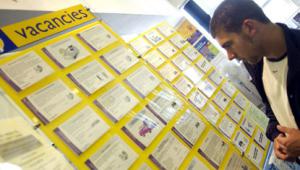By Lucy Phillips
25 January 2011
The government borrowed less than expected last year, leaving it on course to meet its target for the 2010/11 financial year, according to official figures out today.
The Office for National Statistics said net borrowing was £16.8bn last month, compared with £21bn in December 2009. Total public sector borrowing for the year 2010/11 to date now stands at £118.4bn, down from £126.8bn in the same period the previous year.
The figures were lower than economists had expected and put the government on track to meet its net borrowing target of almost £149bn for the financial year, which ends in March.
Rowena Crawford, a research economist at the Institute for Fiscal studies, said: ‘Overall borrowing in the first nine months of this financial year remains broadly on track to meet the Office for Budget Responsibility's forecast of £148.5bn, although much uncertainty – in particular, relating to the scale of January's income tax receipts from financial sector bonuses – remains.’
The above figures exclude the impact of the bank bailout, which today it was revealed would increase the public sector’s net debt by £1,300bn.
But Crawford warned that this ‘vastly over estimated the challenge facing the government’ in its attempt to correct the public finances since it included all the long-term liabilities of Royal Bank and Scotland and Lloyds Banking Group.
She said the government was sensible to focus on measures of debt that excluded this because the debt would largely disappear when the taxpayers’ stake in the banks was sold off.
There was less good news from today’s growth figures, which showed the UK economy contracted by 0.5% in the last three months of 2010. This compared with an increase of 0.7% in the previous three months.
The ONS put the decline down to bad weather in December, but others were quick to blame the government’s spending cuts.
New shadow chancellor Ed Balls said: ‘We are seeing the first signs of what the Conservative-led government’s decisions are having on the economy. The fact is cuts which go too far and too fast will damage our economy.’
Mark Serwotka, general secretary of the Public and Commercial Services union, added: ‘These figures show that the coalition government’s plan to slash public spending, in the vain hope the private sector will step in, is simply not working.
‘The economic recovery has halted and there is now a real risk of a double-dip recession, particularly when you consider the next quarter’s figures will include the impact of the VAT rise ,which is also likely to damage the retail sector.’
Chancellor George Osborne blamed the weak figures on the bad weather and said the government would not be ‘blown off course’ in its plan to cut the deficit by slashing public spending.



















